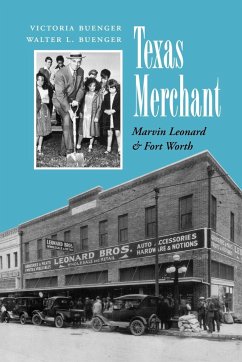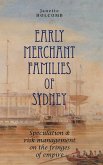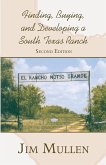Few department stores symbolized the aspirations of a community or represented the identity of its citizens in a stronger or more enduring way than Leonards in Fort Worth, Texas. For over fifty years, as the store grew from a cubbyhole across from the Tarrant County courthouse into a retailing behemoth sprawling over six and a half downtown blocks, Marvin Leonard, the store's founder, and his brother Obie ran a store that was always a unique place to shop. The brothers used a combination of large volume, low mark-up, and quick turnover to keep prices low and appeal to the common people of Fort Worth and West Texas. Customers also found a stunning array of goods -- fur coats and canned tuna, pianos and tractors -- and an environment that combined the spectacular with the familiar. But the story of Leonards goes beyond the store and the man who made it. For Marvin Leonard, downtown Fort Worth and Leonards were always intertwined. In the earliest years, Fort Worth's working families and rural West Texans shopped Leonards for bargains, but also because it was Fort Worth's place to meet and greet. As Fort Worth's demographics changed, Leonards created a carnival-like atmosphere that drew customers to the store, even adding its own free subway to ease downtown congestion. Later, downtown's appeal slipped as rural populations declined and rival suburban shopping areas grew, but Marvin Leonard always refused to expand beyond one store and never left downtown. Leonards gave Fort Worth a special identity, a distinctiveness, and an attraction to the city's center. When Tandy bought Leonards and later sold it to Dillard's, Fort Worth's image and character changed. This engaging story of aman, a business, and the community the store mirrored and shaped represents local history and biography at their finest.








